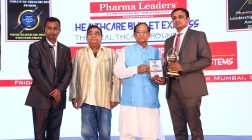Can Brand India Reach for the Stars Next? Kiran Mazumdar Shaw
India’s place in the world arena has always been undermined by a plethora of credibility challenges which successive governments have failed to correct. Prime Minister Modi has the unique opportunity to correct this and deliver on the high expectations that the country eagerly awaits.

A NATIONAL NARRATIVE
At the recent Bangalore LitFest, I had the privilege of listening to Rajiv Malhotra, a well-known socio-political historian who made a compelling case to build a national narrative for India which should aim at erasing some key perception hurdles that prevent us from building global credibility. Fundamental to this is to build a proud branding that derives its core attributes from strengths and values that differentiate India and Indians from other nations and nationalities. Just as the US prides itself in being a nation of exceptional opportunities and exceptional talent, Japan prides itself as a nation focused on precision and high quality, China as a behemoth of unassailable manufacturing scale,Germany as being a nation committed to engineering efficiency and proficiency, France as the culture capital of the world, Italy as the design and style icon etc. etc. What makes these nations credible is their ability to build upon their historical and evolutionary accomplishments.
We Indians pride ourselves as being one of the world’s oldest civilizations but we have not moved beyond reflected glory. What we need is a national narrative around knowledge and wisdom that emanates from our old scriptures and our Vedas that promulgated high science and math. The stellar success of our Mars Orbiter Mission,Mangalyaan, surprised not just the world but us Indians too! This reflects our poor understanding of who we are and where we came from. India has been a centre of learning for thousands of years. The “Ivy League” of the eastern world in 5 century BC were Nalanda and Taksashila where scholars from distant lands would travel to quench their intellectual thirst. Sanskrit was the basis of construct of all languages and even today provides the algorithm for computational language translation. India gave “Shunya” or Zero to the realm of mathematics which enabled our present day digital technology. It is our deep connect with science and math that explains why Indians lead the world in writing code and supporting the world’s IT infrastructure. It is also our deep connect with Life Sciences that provides intellectual capital to drug research the world over. Why can’t India project this centuries’ old excellence in high science and have the world accept that our future will be led by science and technology.
MAKE IN INDIA
“Make in India” is a great slogan but can we back it with enabling policies?Manufacturing calls for low cost capital, speed of project implementation, operational efficiency and global competitiveness. Prime Minister Modi’s 3D campaign for Democracy, Demography and Demand revolves around the principles of free enterprise, demographic dividend and market demand. However, in reality, none of these are easy to achieve in India. Over regulation and nepotism have crippled free enterprise, poor education has resulted in a skill deficit and sub-optimal logistics and inadequate infrastructure has stifled demand. We have to add to this the cumbersome and difficult land acquisition and labour laws that challenge the credibility of “Make in India”. A “Made in India” label has a huge credibility challenge in terms of quality, consistency and dependability. We need urgent regulatory and policy reforms that are aligned with what “Make in India” should stand for: Highest Quality at Lowest Cost. A combination of self-certification and third party audits can provide a quick start to address speed and quality. Special Economic Zones (SEZs) need to be revived and revitalized as they are neither “Special” nor “Economic”! We have 478 approved SEZs of which only 172 are operational. Simplification of operational norms through self-certification, removal of the Minimum Alternate Tax (MAT) and Dividend Distribution Tax (DDT) and perhaps exempting Domestic Tariff Area (DTA) sales from duties will energize this ailing sector. It is worth noting that the 172 SEZs that are operational, account for 25% of manufacturing exports.
We also need to focus on creating high value “Made in India” labels that can boast of innovation and IP. Whether it is a proprietary software, a novel drug, a new medical device or a new consumer product, the India brand should stand for affordable high quality innovation. Mangalyaan needs greater publicity and branding on the world stage. Whilst it made headlines in India and in several international publications, the average American or German does not even know of this important event.
FRUGAL INNOVATION THROUGH ADVANCED S&T
If India is to build a credible scientific and engineering profile, then we do need to seriously invest in research in the public and private sectors. India’s Space Research budget was a modest $1.3 Billion for FY15 compared to NASA’s $16.6 Billion. Despite this frugal investment, ISRO has had a number of successful space programs crowned by the Mars Orbiter Mission. Behind its success is a vibrant multi-disciplinary scientific and engineering talent pool. Mangalyaan is a powerful mascot for Indian Science and Technology. Scaling up ISRO will provide exciting opportunities to Physicists, Mathematicians, Computer Scientists, Engineers and even Life Scientists which in turn will create a virtuous cycle for young minds to pursue science. India needs scale and ambition in its scientific and technological endeavours if our science-led national narrative is to be credible. We need to establish large scientific centres of excellence across the Physical and Life Sciences, Mathematics and Computational sciences. Big Data Analytics is ours for the taking but we need to commit to global leadership by investing significantly in this sector. Genomics, for example, is an area where we can excel and leverage big data analytics and yet we do not have any Genomics Institute of any credible scale.
DRUG INNOVATION – AN UNDERPERFORMING AREA
Drug discovery has always been an area that has eluded us despite our scientific and medical talent pool. We have preferred to export our talent than provide them with a research platform in our country. Our doctors have preferred to be medical practitioners than clinical researchers. Our pharmaceutical companies have preferred to imitate and produce generic drugs rather than innovate and develop novel drugs. All this has led to a risk-averse eco-system in bio-medical research which has seen a ban on clinical trials, a hesitant regulatory system that does not have confidence in approving new drugs and above all, a medical community who trust foreign rather than home grown innovation. Moreover, we have barely created any Intellectual Property that could add credible value to our scientific pursuits. Unless we change this, we will not leverage the rich talent pool that we have and we will lose an opportunity to lead in an area so critical to our people who deserve access to affordable and innovative therapeutics.
INFORMATION TECHNOLOGY – A CREDIBLE SECTOR
Of all the sectors, Information Technology is the only one that has earned us global credibility. India clearly has leadership in software services and is the undisputed preferred destination for IT development. However, we have yet to deliver a home grown operating system to the world. What is refreshing though is the mushrooming of start-ups and e-tailing companies that have started developing products and value added services for a number of global applications. Take for example Mu Sigma, a Bangalore based start-up formed less than a decade ago that is now a data mining juggernaut. InMobi, another young start-up from Bangalore has built a global advertising platform for smart phones.These are early days for a new breed of entrepreneurs who have the understanding and the capability to build products and value added services for global markets.What is required is Venture Capital to retain these companies in India. Or else, they will simply be acquired by overseas behemoths only for want of capital. Flipkart, the country’s most successful e-tailing company, has attained a domestic stature comparable to China’s Alibaba who recently had the biggest IPO ever on NYSE. Amazon, which recently entered India, sees Flipkart as its biggest competitor. If India needs to create global brands, we need to provide access to capital markets on par with US capital markets. Today’s listing norms simply do not permit start-ups and young companies to access capital markets. Although the NSE has created an alternate exchange for SMEs, the norms are still not aligned with the concept that intrinsic value not profits, are the growth drivers.
Let’s therefore build our global profile as a Tech-savvy, scientifically intelligent and commercially astute nation that aims at affordable yet high quality innovation backed with skilled expertise and an expanding market demand that will create a powerful and credible brand for India and restore our legendary prowess in science and engineering. Our Mars Mission has paved the way, let us move forward and aim for the stars next!
Kiran Mazumdar Shaw*

Kiran Mazumdar-Shaw, founder of Biocon, India’s largest listed biopharma firm and maker of drugs for diseases such as cancer and diabetes, aims to more than double its revenues to $1 billion by 2018. Ahead of a long-awaited listing of research services arm Syngene, Biocon bought back GE Capital’s 7.7% stake in it for $35 million and sold 10% to investment firm Silver Leaf Oak. She was awarded the Global Economy Prize by Germany’s Kiel institute in June










